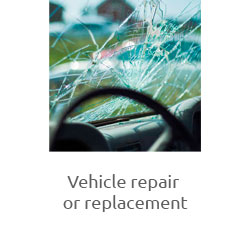 |
 |
|
 |
 |
|
 |
 |
 |
 |
 |
|||
 |
 |
 |
 |
 |
 |
 |
 |
 |
|||
 |
 |
 |
|
 |
 |
|
 |
 |
|
Claim Compensation for Car Accident: A Comprehensive GuideUnderstanding the Basics of Car Accident CompensationIn the aftermath of a car accident, understanding how to claim compensation is crucial. This process involves assessing damages, gathering evidence, and often dealing with insurance companies. Types of Compensation
Steps to File a Car Accident ClaimFiling a claim involves several steps. It's important to act promptly to ensure all necessary documentation is accurate and complete. Gathering EvidenceStart by collecting all relevant evidence such as photos of the accident scene, witness statements, and police reports. This information is vital in supporting your claim. Contacting Your Insurance CompanyReport the accident to your insurance company as soon as possible. Provide them with the gathered evidence to facilitate the process. Consider seeking legal advice from an attorney for car accident to navigate complex claims. Negotiating a SettlementOnce a claim is filed, negotiations with the insurance company typically ensue. Understanding your rights and being prepared to negotiate is key. Role of Legal RepresentationAn attorney car accident can provide valuable assistance during negotiations, ensuring you receive a fair settlement. FAQ SectionWhat should I do immediately after a car accident?Ensure safety first, then document the scene and gather witness information. Contact your insurance company and consider consulting a lawyer. How long do I have to file a claim?The time frame varies by state but is generally between two to four years. It is essential to file as soon as possible to avoid complications. Can I handle a claim without an attorney?While it's possible to handle a claim on your own, having an attorney can greatly improve your chances of receiving fair compensation. ConclusionClaiming compensation for a car accident requires diligence and understanding of the process. Whether handling it personally or through legal assistance, being informed and prepared is crucial. Seeking professional help can often result in a more favorable outcome. https://www.tragoslaw.com/personal-injury-guide/car-accident-damages-florida/
Under the law, this includes permanent harm, significant disfigurement and permanent physical disability. You can also sue if your loved one was fatally injured ... https://www.lorenzoandlorenzo.com/personal-injury-guide/car-accident-compensation-steps/
You should never attempt to handle a car accident claim yourself unless there are no complications and the amount of coverage is sufficient. When insurance ... https://www.lorenzoandlorenzo.com/personal-injury-guide/car-accident-damages/
This is a very personal type of injury. Your attorney can seek compensation for the stress and anxiety the accident has caused. For some people, mental anguish ...
|
